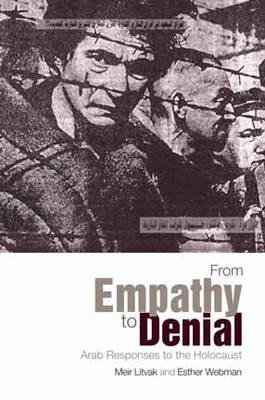Columbia/Hurst
1 total work
Based on years of research conducted mostly in Arabic sources, Meir Litvak and Ester Webman track the evolution of post-World War II perceptions of the Holocaust and their parallel emergence in the wake of the Arab-Israeli conflict of 1948. Following the establishment of the State of Israel, Arab attitudes toward the Holocaust became entangled with broader anti-Zionist and anti-Semitic sentiments. Litvak and Webman track this discourse through the work of leading intellectuals and turn to representations of the Holocaust in the media and culture of Egypt, Lebanon, Jordan, and among the Palestinian people. Their chronological history, which spans sixty years, provides a remarkable perspective on the origins, development, and tenaciousness of anti-Holocaust belief.
